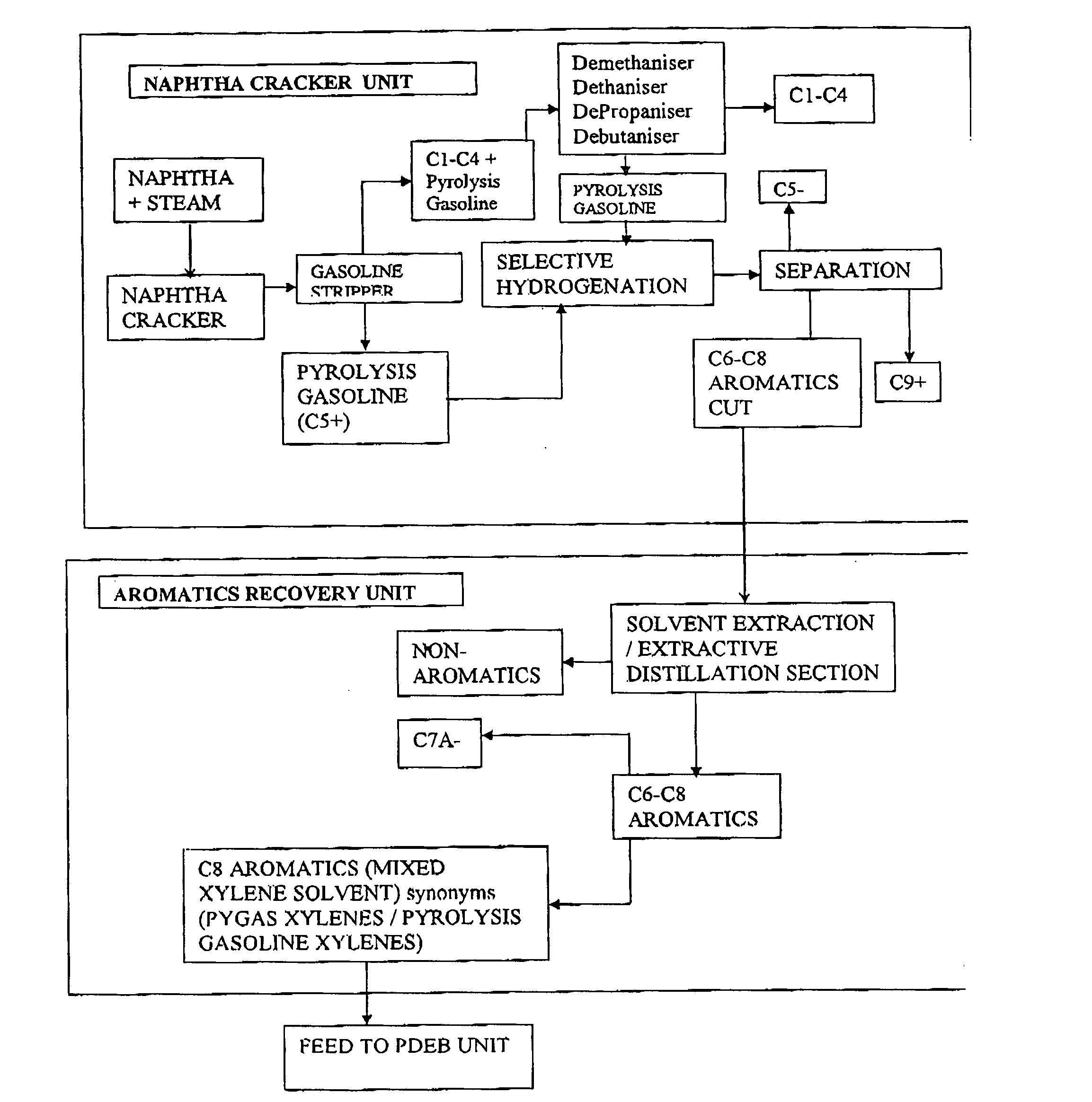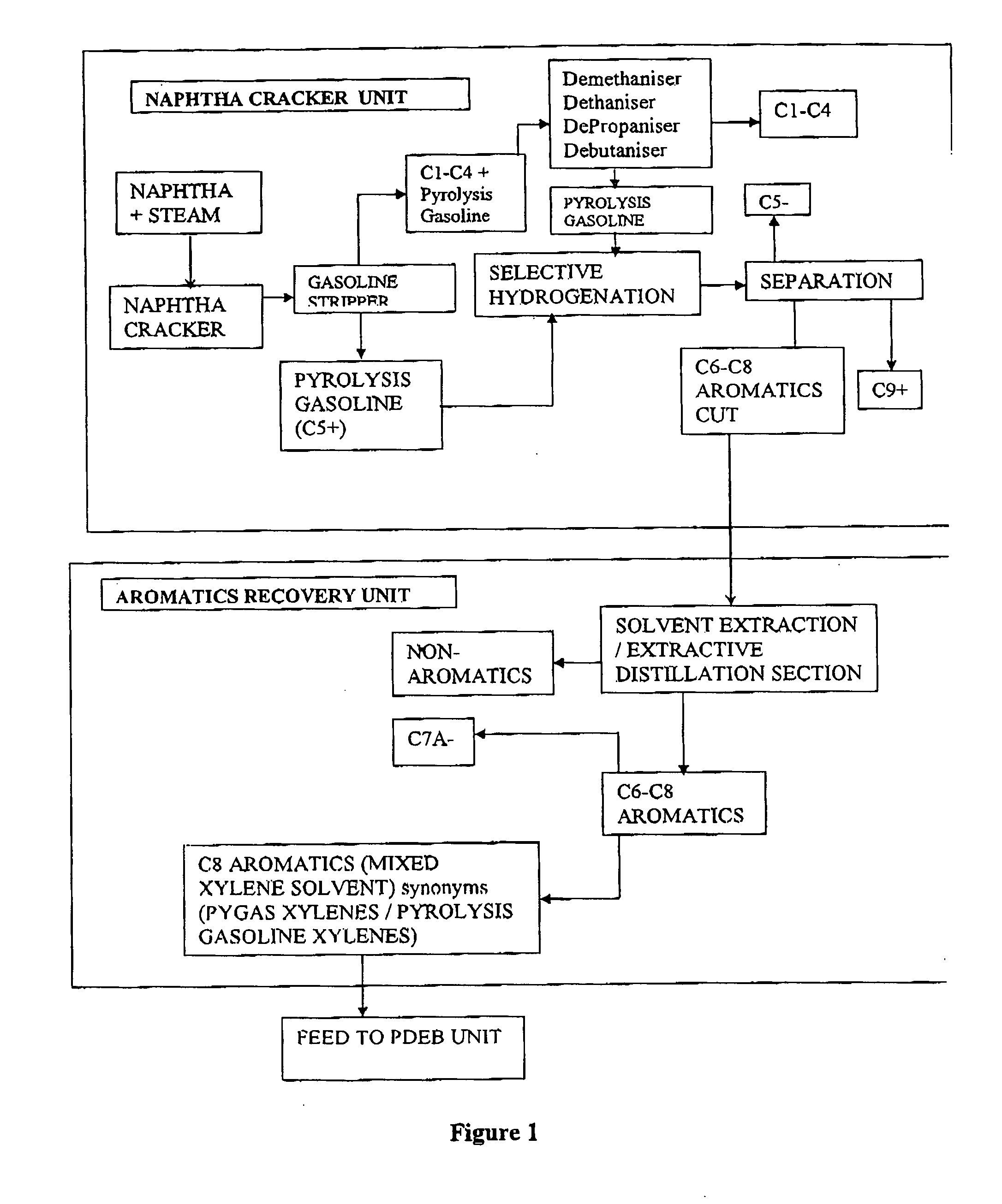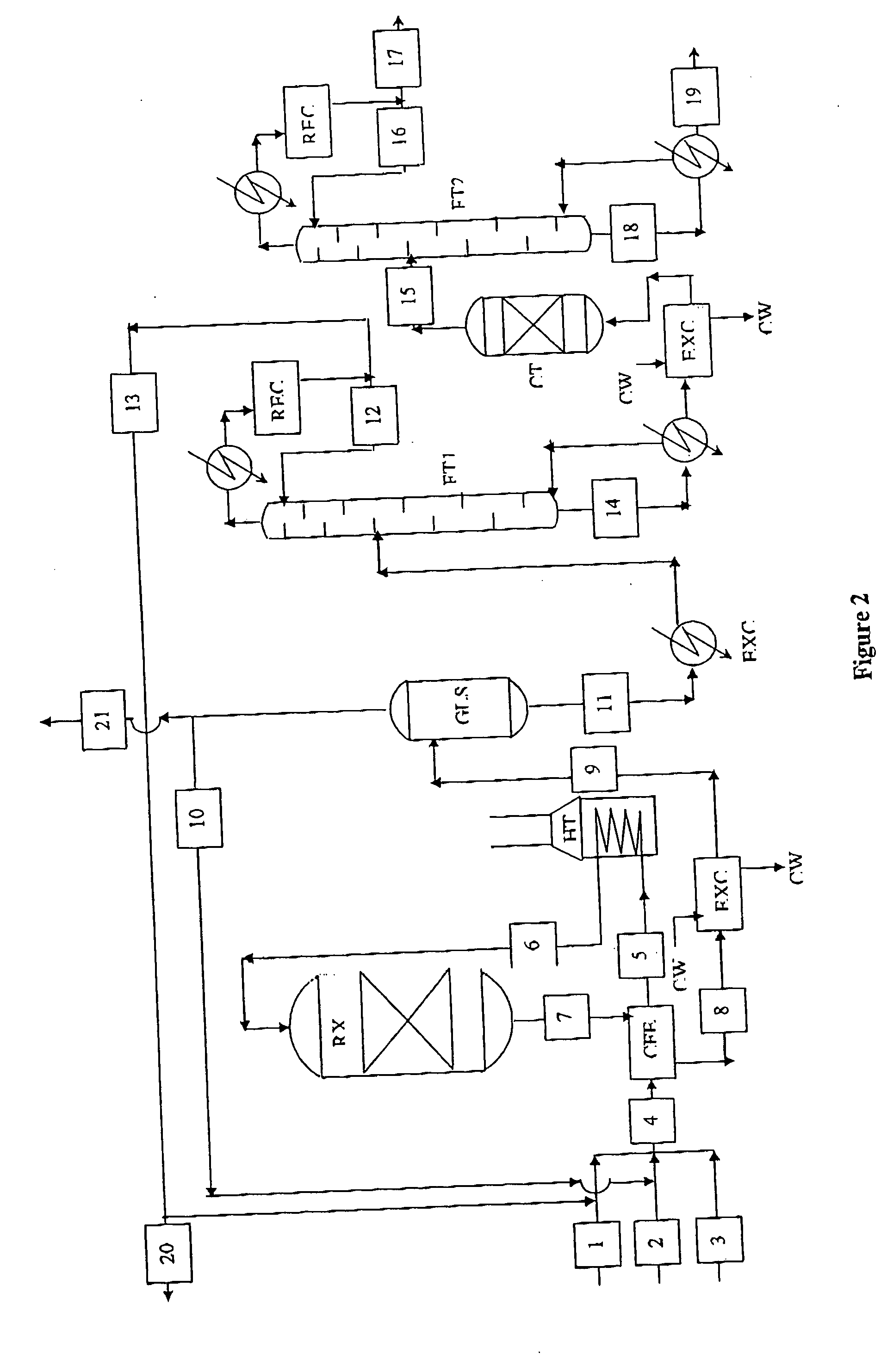Process for the production of para-diethylbenzene
a technology of paradiethylbenzene and para-diethylbenzene, which is applied in the direction of hydrocarbon preparation, molecular sieve catalyst, hydrocarbon preparation, etc., can solve the problems of difficult separation, high cost, and inability to avoid loss of raw materials
- Summary
- Abstract
- Description
- Claims
- Application Information
AI Technical Summary
Benefits of technology
Problems solved by technology
Method used
Image
Examples
example 1
[0083] Catalyst A (Comparative): 100 gm. of H—Ga—Al-ZSM-5 extrudates were soaked in a solution containing 32.5 gm tetraethoxy silane in a mire of 100 ml toluene and 60 ml methanol for 6 hours at room temperature and pressure. The solvents (toluene and methanol) were distilled off and the extrudates were dried in oven at 120° C. overnight. Finally, the tetraethoxy silane treated extrudates were calcined in a flow of air at 535° C. for 8 hours.
[0084] Catalyst B: This example shows the effect of addition of liquid water in selectivation procedure. 100 gm of Ga—As-ZSM-5 extrudates in H-form were added to a solution of 32.5 gm of tetraethoxy-silane in solvent mixture of 100 ml toluene and 60 ml methanol at ambient conditions and allowed to soak for 6 hours. The extrudates were recovered by distilling off the solvents. 50 ml of water was added to the extrudates and left for 30 minutes. The wet extrudates were then dried at 120° C. for 12 hours, and calcined at 540° C. in air for 8 hours....
example 2
[0087] Catalyst D; This example illustrates the improved multiple silanation method of modification with addition of liquid water. The example is given for two silanation, but the technique holds for any number of silanation. The two silanation were carried out by repeating the complete procedure as described in case of Catalyst B.
[0088] Catalyst E: This example illustrates the improved multiple silanation method of modification in the presence of water vapour. The example is given for two silanation, but the technique holds for any number of silanations. The two silanations were carried out by repeating the complete procedure as described in case of Catalyst C.
[0089] Catalyst F; This example illustrates multiple silanation without any calcination after each silanation The example is shown for two silanations but holds good for any number of silanations. 100 gm of Ga—Al-ZSM-5 extrudates in H-form were added to a solution of 32.5 gm of tetraethoxy silane in solvent mixture of 100 m...
example 3
[0091] Catalyst F was tested for performance in a ‘CATATEST’ unit using ‘MXS’ (Mixed xylene solvent, or pygas xylene) and ethylene to check catalyst performance and selectivity for para-diethylbenzene as well as stability. The results are given in table 3.
TABLE 3Catalytic performance of selectivated metallosilicatesfor para-diethylbenzene production, using mixedxylene solvent and ethylene.Liquid ProductTime on Steam, hr.Analysis, wt %Feed4095180260380Lighters0.090.050.070.160.06Benzene1.11.160.840.810.79Toluene0.660.730.710.690.680.69Ethylbenzene75.2866.366.5266.2866.5767.01Xylenes23.1522.6922.6822.7722.7522.61C9 aromatics0.871.060.991.031.080.98Meta-diethylbenzene0.060.060.060.060.05Para-diethylbenzene7.567.47.827.427.4Ortho- diethylbenzeneC10+ aromatics0.040.410.430.440.470.41Total DEBs, wt %7.627.467.887.487.45PDEB Selectivity, %99.2199.2099.2499.2099.33
Temperature = 330° C.,
WHSV = 3 / h,
Ethylbenzene (in MXS):ethylene = 8:1 mol / mol, Pressure 2 bar (g),
Hydrogen:Hydrocarbon = 2 ...
PUM
| Property | Measurement | Unit |
|---|---|---|
| wt % | aaaaa | aaaaa |
| wt % | aaaaa | aaaaa |
| wt % | aaaaa | aaaaa |
Abstract
Description
Claims
Application Information
 Login to View More
Login to View More - R&D
- Intellectual Property
- Life Sciences
- Materials
- Tech Scout
- Unparalleled Data Quality
- Higher Quality Content
- 60% Fewer Hallucinations
Browse by: Latest US Patents, China's latest patents, Technical Efficacy Thesaurus, Application Domain, Technology Topic, Popular Technical Reports.
© 2025 PatSnap. All rights reserved.Legal|Privacy policy|Modern Slavery Act Transparency Statement|Sitemap|About US| Contact US: help@patsnap.com



